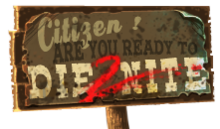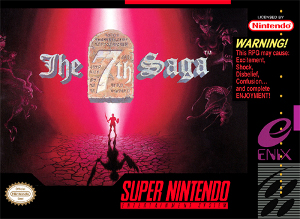
The 7th Saga is a turn-based role-playing video game developed by Produce! and published by Enix for the Super Nintendo Entertainment System in 1993. The game made innovative use of a radar system during gameplay. It featured 7 playable characters of various types including humans, an elf, a dwarf, robots, a demon, and an alien. Each character has unique items and spells.

Dead Rising is a 2006 action-adventure game developed and published by Capcom. The game is the first entry in the Dead Rising series. The story follows photojournalist Frank West after he becomes trapped in a zombie infested shopping mall in the town of Willamette, Colorado. Frank must uncover the mystery behind the outbreak before a rescue helicopter arrives in three days to evacuate him. The game features multiple endings depending on the conditions met by the player.

Resident Evil Outbreak is a survival horror video game developed and published by Capcom for the PlayStation 2. It was released on December 11, 2003 in Japan, on March 30, 2004 in North America, and on September 17, 2004 in PAL regions. It was the first entry in the Resident Evil video game series to feature cooperative gameplay and online multiplayer support, although online support was not available for the PAL versions of the game.

Urban Dead is a free-to-play HTML/text-based massively multiplayer online role-playing game created by British developer Kevan Davis. Set in a quarantined region of the fictional city of Malton, it deals with the aftermath of a zombie outbreak. Players enter the game either as a survivor or a zombie, each with different abilities and limitations. Survivors become zombies when they are killed, while zombies can be "revivified" with appropriate technology, returning to life as a survivor – any character played for long will thus spend some time alive and some as a zombie. There are no non-player characters in the game: all survivors and zombies are controlled by players.

The Horde is a hybrid action-strategy video game that was originally released for 3DO and was ported to the Sega Saturn and DOS. It also featured full-motion video sequences featuring a number of actors including Kirk Cameron as Chauncey and Michael Gregory as Kronus Maelor. Video sequences were reduced to slide shows in some versions.

Mortal Kombat: Armageddon is a 2006 fighting game and it is the seventh main installment in the Mortal Kombat franchise and a sequel to 2004's Mortal Kombat: Deception. The PlayStation 2 and Xbox versions were released in October 2006, with a Wii version released on May 29, 2007 in North America. The Xbox version was not released in PAL territories. Chronologically the final chapter in the original Mortal Kombat storyline, it features virtually every character from the previous games. Players select one of them and battle a selection of the other fighters. The story follows a warrior named Taven after being awakened who goes on a journey to defeat his evil brother leading up to the Armageddon war to determine the fate of the Mortal Kombat universe.
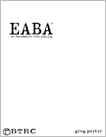
The End All Be All game system, commonly known as EABA and pronounced "ee-buh", is a role-playing game system from Blacksburg Tactical Research Center (BTRC). It is a generic gaming system designed to adapt to any imaginary gaming environment. It was created by Greg Porter in 2003. The game cites the Hero System, GURPS and Call of Cthulhu as influences in its development.
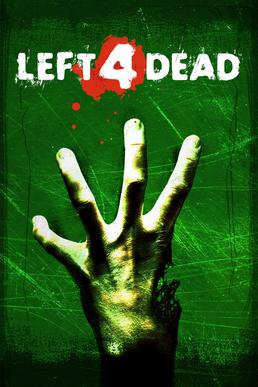
Left 4 Dead is a 2008 first-person shooter game developed by Valve South and published by Valve. It was originally released for Windows and Xbox 360 in November 2008 and for Mac OS X in October 2010, and is the first title in the Left 4 Dead series. Set during the aftermath of a zombie outbreak on the East Coast of the United States, the game pits its four protagonists, dubbed the "Survivors", against hordes of the infected.
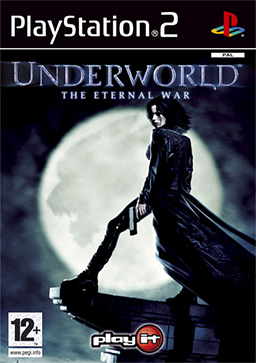
Underworld: The Eternal War is a 2004 top-down shooter video game based on the 2003 action film Underworld. It was originally planned to release along side the movie on Xbox and PC. Both versions were cancelled at some point.
Left 4 Dead is a series of cooperative first-person shooter survival horror video games created by Turtle Rock Studios and published by Valve. Set in the days after a pandemic outbreak of a viral strain transforming people into zombie-like feral creatures, the games follow the adventures of four survivors attempting to reach safe houses and military rescue while fending off the attacking hordes.

Fort Zombie is a role-playing video game developed by Kerberos Productions. It was released on October 30, 2009. The game takes place on a version of Earth that is being invaded by an evil force which warps reality and creates zombies. Players control Ben Riley, a young man who has survived through the destruction and is setting up a haven in the fictional town of Piety, Indiana. Each version of Piety in any play-through is procedurally generated, with different houses, items and enemies placed each time the player enters the town. Players must choose a location to fortify, build defenses and find supplies and survivors in thirteen in-game days before a zombie horde pours out of Indianapolis and overwhelms the survivors. The game began as a test for technology to be used in the upcoming game Northstar and uses a similar engine.
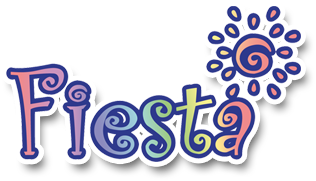
Fiesta is a free-to-play massively multiplayer online role-playing game (MMORPG) for Microsoft Windows. Fiesta features an anime style characters rendered in 3D. Fiesta Online was originally published in 2003 but was later published by Outspark and subsequently taken over by Gamigo AG.
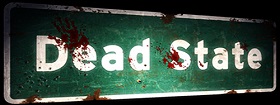
Dead State is a turn-based survival horror role-playing video game developed by DoubleBear Productions and Iron Tower Studio set in a zombie apocalypse scenario. Players are tasked with leading a group of survivors living in a shelter in the fictional town of Splendid, Texas. Dead State was released in December 2014 after having been in Early Access since spring of that year. DoubleBear Productions continued to work on the title and in May 2015 released an "enhanced edition" which changed the name to Dead State: Reanimated.
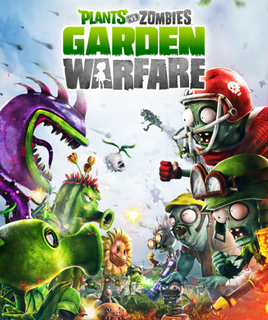
Plants vs. Zombies: Garden Warfare is a 2014 multiplayer third-person shooter and tower defense video game developed by PopCap Games and published by Electronic Arts. The third game in the Plants vs. Zombies franchise, the basic premise revolves around plants defending humankind from a zombie invasion. In the game, players assume control of either the Plants or the Zombies, as they fight in various cooperative and competitive multiplayer modes. Upon completing matches and finishing objectives, players earn coins to acquire stickers that unlock customization items and character variants.
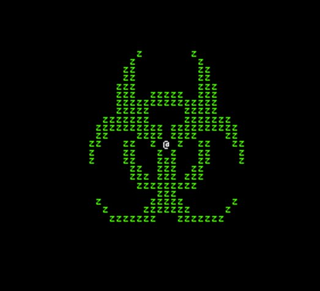
Cataclysm: Dark Days Ahead (CDDA) is an open-source survival horror roguelike video game. Cataclysm: Dark Days Ahead is a fork of the original game Cataclysm. The game is freely downloadable on the game's website and the source code is also freely available on the project's GitHub repository under the CC BY-SA Creative Commons license. The game is currently largely developed by its community. Rock, Paper, Shotgun named CDDA one of "The 50 Best Free Games on PC" in 2016.

Orcs Must Die! Unchained was a third installment in the Orcs Must Die! franchise from Robot Entertainment, available for Microsoft Windows and PlayStation 4. Unchained was initially released as a beta version in 2014, and later in its release form in 2017 for the Windows platform on April 19, and for PlayStation 4 on July 18.
Dead of Winter is a semi-cooperative survival strategy board game for two to five players designed by Jonathan Gilmour and Isaac Vega through Plaid Hat Games. The game is set in a post-apocalyptic, zombie-infested colony. Players are faction leaders who must work together to ensure the colony's survival through incoming zombies and lack of supplies. In addition, players have individual, secret win conditions that they must meet to be victorious.

Arizona Sunshine is a zombie survival first-person shooter video game released on December 6, 2016. The game is compatible with the HTC Vive, Oculus Rift, Oculus Quest, Valve Index and PlayStation VR virtual reality headsets. A sequel, Arizona Sunshine 2, was released in 2023.

Dead Cells is a 2018 roguelike-Metroidvania game developed by Motion Twin and Evil Empire, and published by Motion Twin. The player takes the role of an amorphous creature called the Prisoner. As the Prisoner, the player must fight their way out of a diseased island in order to slay the island's King. The player gains weapons, treasure and other tools through exploration of the procedurally-generated levels. Dead Cells features a permadeath system, causing the player to lose all items and other abilities upon dying. A currency called Cells can be collected from defeated enemies, allowing the player to purchase permanent upgrades.

World War Z is a third-person shooter video game developed and published by Saber Interactive. It was released for Microsoft Windows, PlayStation 4 and Xbox One on 16 April 2019, and a Nintendo Switch version was released on 2 November 2021. It was released for Google Stadia on 5 April 2022. Ports for PlayStation 5 and Xbox Series X/S released on 24 January 2023. Loosely based on the 2006 novel World War Z and set in the same universe as the 2013 film adaptation, the game follows groups of four survivors of a zombie apocalypse.
